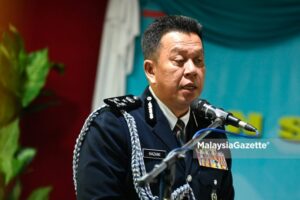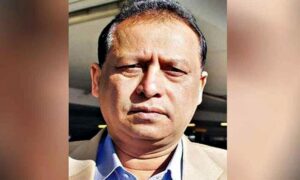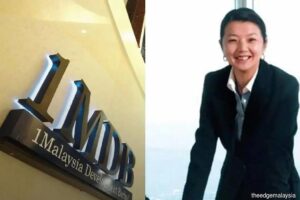By Channel News Asia
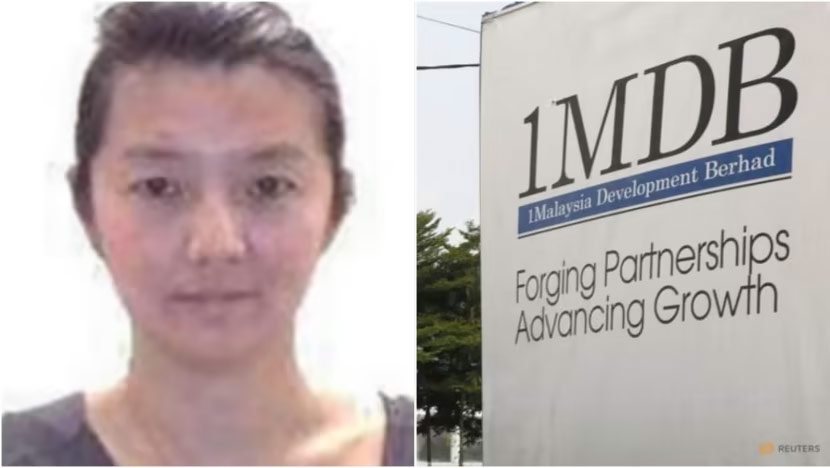
In early April, the Malaysian lawyers for fugitive Jasmine Loo Ai Swan reached out to top officials at the Home Ministry with a request from their client to explore the prospect of returning home after five years on the run and to negotiate a legal settlement to criminal charges over the financial scandal around 1Malaysia Development Bhd (1MDB).
Apart from pledging to return some 1MDB-related funds, the former general counsel of the sovereign wealth fund, who by most counts is ranked just below one-time globe-trotting financier Low Taek Jho in the current list of Malaysia’s most-wanted corporate outlaws, also promised to cooperate with Prime Minister Anwar Ibrahim’s government in its asset recovery campaign, sources with direct knowledge of the matter have told CNA.
The proposal by AmerBON, Advocates, a law firm based in the capital Kuala Lumpur, came to Home Minister Saifuddin Nasution Ismail, who has been exploring new approaches to resolve the outstanding issues surrounding 1MDB, including an ongoing review of the out-of-court settlement negotiated by the previous Muhyiddin Yassin government with international financial powerhouse Goldman Sachs that is now in dispute.
Within days, Mr Saifuddin and a small group of senior officers from the Home Ministry and the police put into motion a high-level and sensitive covert cross-border operation to bring back a highly valued suspect.
Mr Saifuddin told reporters last week that Loo was arrested after she surrendered to the police on Jul 7. He added that Loo would assist the police and the Malaysian government with the ongoing investigations into 1MDB. However, few other details were given, including her whereabouts after her disappearance to escape charges over alleged money laundering involving over US$1 billion and criminal breach of trust.
In a public statement shortly after Mr Saifuddin’s disclosure of Loo’s arrest, law firm AmerBON, Advocates, said that their client’s “priority is to cooperate with the relevant law enforcement agencies in their ongoing investigations into 1MDB, and to facilitate and assist the Malaysian government in expediting its assets recovery efforts”.
The firm provided no other details. It also declined to comment on queries submitted by CNA for this article. Loo’s New York-based lawyer, Justin M. Sher of Sher Tremonte, responded by email to say he could not comment on CNA’s queries.
What Loo’s lawyers and the Malaysian government did not disclose is that after more than five years on the run, travelling with forged documents between border towns in Thailand, Cambodia, Macau, and China, Loo had been hiding in Myanmar. In the last two months, the 50-year-old lawyer had been holed up in the Malaysian embassy in Yangon before making her way back to Kuala Lumpur.
This information, along with other details in this article of Loo’s return, was disclosed to CNA in interviews with senior government officials and lawyers close to the situation. All spoke on condition of anonymity because of the sensitivity surrounding the matter.
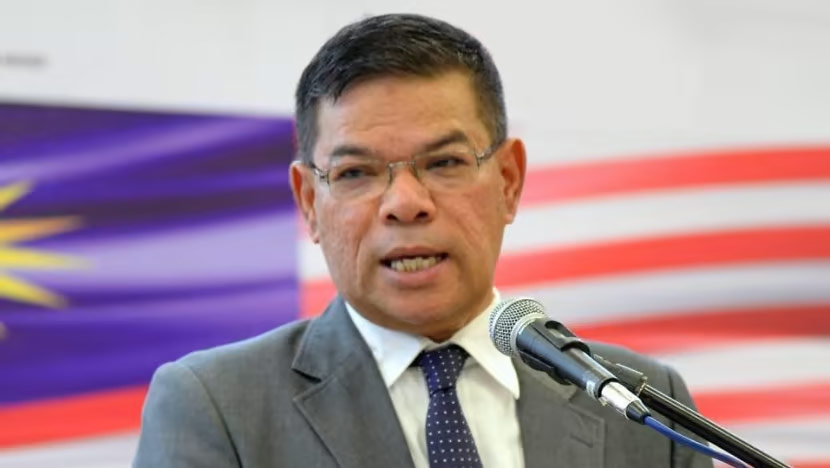
Loo’s return marks an important breakthrough in the ongoing 1MDB investigations and asset recovery campaign.
Loo is a key member of fugitive financier Low’s elite cabal of lawyers and financiers-turned-fraudsters. Alongside Casey Tang Keng Chee, Tan Kim Loong, and Geh Choh Heng, they were central players in the multi-billion-dollar embezzlement scandal at 1MDB. Long part of Low’s inner circle, Loo also played a central role in the three men’s involvement in the scandal.
Against the backdrop of Loo’s return, some questions have been raised about whether Low, who is better known as Jho Low, would now consider approaching the Malaysian government for settlement negotiations.
Officials are not discounting anything as it moves to resolve all outstanding matters related to the 1MDB scandal. “We are taking things one at a time. This (Loo’s return) is a good outcome and we will see how matters develop from here,” noted a senior administration official close to Home Minister Saifuddin.
Loo, who studied law in the United Kingdom, was a long-time associate of Low. She worked as a senior compliance officer at UBG Group, a corporation that was at one time controlled by Low, before joining 1MDB as senior legal counsel sometime in late 2011. She played central roles in 1MDB’s diversification into the power generation business, purchasing facilities owned by Malaysian listed entities, Tanjong Plc, which is controlled by tycoon Ananda Krishnan, and gaming powerhouse Genting Bhd.
1MDB’s push into the power generation business was financed by bond issues amounting to US$6.5 billion that were arranged by Goldman Sachs. Loo served as the chief liaison officer with the US bank. The 1MDB bond issues were also guaranteed by the Abu Dhabi government through its state-owned entities and the transactions were subject to theft and embezzlement.
According to the US Justice Department, which called the 1MDB fiasco the worst form of kleptocracy in recent history, over US$1.37 billion was siphoned from 1MDB during the three Goldman-underwritten bonds in 2012 and 2013 and references were made to a so-called “1MDB Officer 3”, which Malaysian government investigators acknowledge is Loo. Of the total amount siphoned, the Justice Department said that about US$10 million ended up in a Swiss bank account held under the name River Dee International SA. “1MDB Officer 3” was identified as the ultimate beneficiary of the account.
Shortly after former premier Najib Razak was removed from power in the May 2018 general election, Loo and Low’s other cohorts left the country. Low’s key lieutenants were believed to be travelling in China, Macau, and also in Kuwait and Abu Dhabi.
Loo turned up on the Malaysian radar again when the national graft watchdog Malaysian Anti-Corruption Commission (MACC) began negotiating a settlement agreement with another 1MDB suspect, Kee Kok Thiam, who used to be employed by 1MDB.
Kee was deported in early May to Malaysia from Macau after allegedly overstaying in Macau.
The MACC did not disclose Kee’s identity when he landed at Kuala Lumpur International Airport in the early hours of May 3. But the agency noted the return of the unnamed 1MDB suspect had resulted in the recovery of MYR16 million from accounts in Singapore registered under an entity called Wright Shaw Ltd.
“Prior to this MACC was in collaboration with Singapore’s Commercial Affairs Department, which successfully seized the account belonging to Wright Shaw with approximately US$5.2 million,” MACC said in a statement at the time.
Sources involved in Kee’s debriefing said that he had told Malaysian investigators that Loo had travelled in several Indochina countries and that both of them were living in the Cambodian capital of Phnom Penh until late 2022, before travelling to Yangon on a fake Myanmar passport. Kee died at the end of May after suffering a stroke.
After the initial approach by her lawyers, Loo’s return to Kuala Lumpur was delayed because the Malaysian government had to iron out administrative issues with the Myanmar authorities over complications due to her cross-border travels using fake documents that were only resolved in late June, government sources close to the situation said.
Malaysia has extradition treaties with Indonesia, Thailand, and the United States for the mutual surrender of fugitive criminals. It also applies special provisions under existing laws for the mutual surrender of fugitives with Singapore and Brunei. As for issues with other nations, Kuala Lumpur observes international principles on the so-called Mutual Legal Assistance practices between countries.
Mr Saifuddin did not respond to a request for comment. Officials at the Myanmar embassy in Kuala Lumpur were also unavailable for comment.
Malaysian police said last week that there were concerns over Loo’s safety.
“We don’t want to speak about the arrest because we worry about the danger to her, regardless of whether she is a witness or a suspect,” said Inspector General of Police (IGP) Razarudin Husain.

